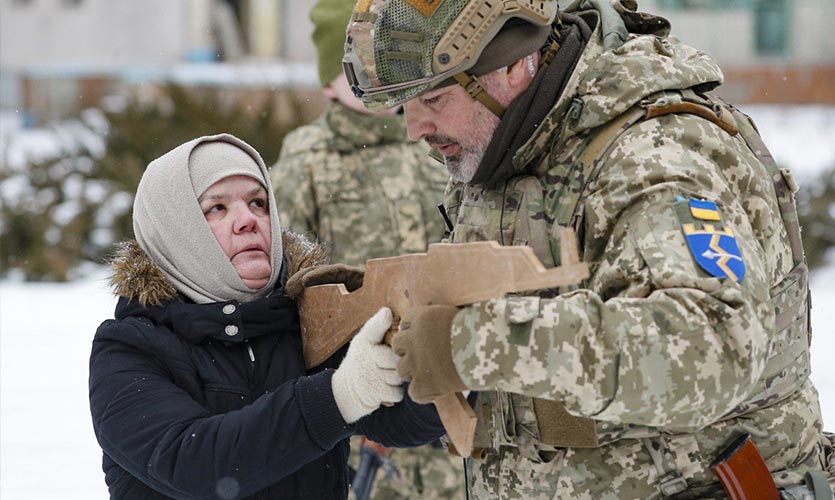Ukrainian President Volodymyr Zelensky declared martial law in the country earlier last week, after Russian troops attacked on various cities of Ukraine, including big cities like Kyiv, Kharkiv, and Odessa. Zelensky said that the measure has been taken in response to Russia’s act of aggression and has accused his neighbouring country of acting like “Nazi Germany”.
In a message to the citizens of Ukraine, President Zelensky mentioned, “Dear Ukrainian citizens, this morning President [Vladimir] Putin announced a special military operation in Donbas. Russia conducted strikes on our military infrastructure and our border guards. There were blasts heard in many cities of Ukraine.” He added, “We’re introducing martial law on the whole territory of our country. A minute ago, I had a conversation with President [Joe] Biden. The US have already started uniting international support. Today each of you should keep calm. Stay at home if you can. We are working. The army is working. The whole sector of defence and security is working.”
While Ukraine remains under martial law amidst the Russian invasion, here is an overview of what the law means for the citizens of the country.
Martial Law
Martial law is a law invoked by the administrating government of a country and put into operation by the country’s military in case of emergencies when civilian law enforcement authorities like the police and elected leaders are not enough to maintain public order. It temporarily empowers the military authorities to control civilian life. Martial Law is generally invoked during times of war, rebellion, and extreme civil disorder. While the specification of the law is different in different countries, it is usually accompanied by curfews, the suspension of civil law, and the application or extension of military law on civilians.
Impact Of Martial Law On Civilians
When martial law is invoked in the country, military officials get the power to make and apply general civil laws. Citizens must look to the military for the enforcement of laws. Furthermore, as the police and civilian leaders become powerless civilians, if found accused of breaching the martial law, they can also be tried in military tribunals instead of civilian courts. Ukrainian President Zelensky has not yet specified the restrictive measure that will be in place till martial law is active in the country. However, military authorities can impose restrictions on movement, block rallies, and ban political parties and organisations in the interests of national security and public order.
Read more: Russia-Ukraine Conflict: How Do The Two Countries Compare In Terms Of Military Prowess?
Why Was Martial Law Invoked In Ukraine?
President Zelensky, in his address to Ukrainians, stated that the law is being imposed in response to Russia’s act of aggression. He said that enforcing the law is an attempt to stabilise pro-separatist and Russian forces that are pushing to split up Ukraine. In 2018, Ukrainian President Petro Poroshenko had also invoked the martial law for 30 days when Russia attacked and seized three Ukrainian naval vessels and their crews.
Martial Law Vs State Of Emergency
Martial law was imposed in Ukraine a day after President Zelensky declared a nationwide state of emergency, in which, special restrictions were applied to keep the country calm and protect its economy amidst fears of the Russian invasion. While martial law is legally similar to a state of emergency, the latter is limited in regards of scope and duration. While most constitutions have documented the conditions under which a state of emergency can be imposed, martial law is open to multiple interpretations, subject to the interpretation of the enacting bodies.
The Indian constitution has no specific conditions of the martial law such as when or under what conditions it can be imposed, but there is detailed documentation of emergency provisions.










